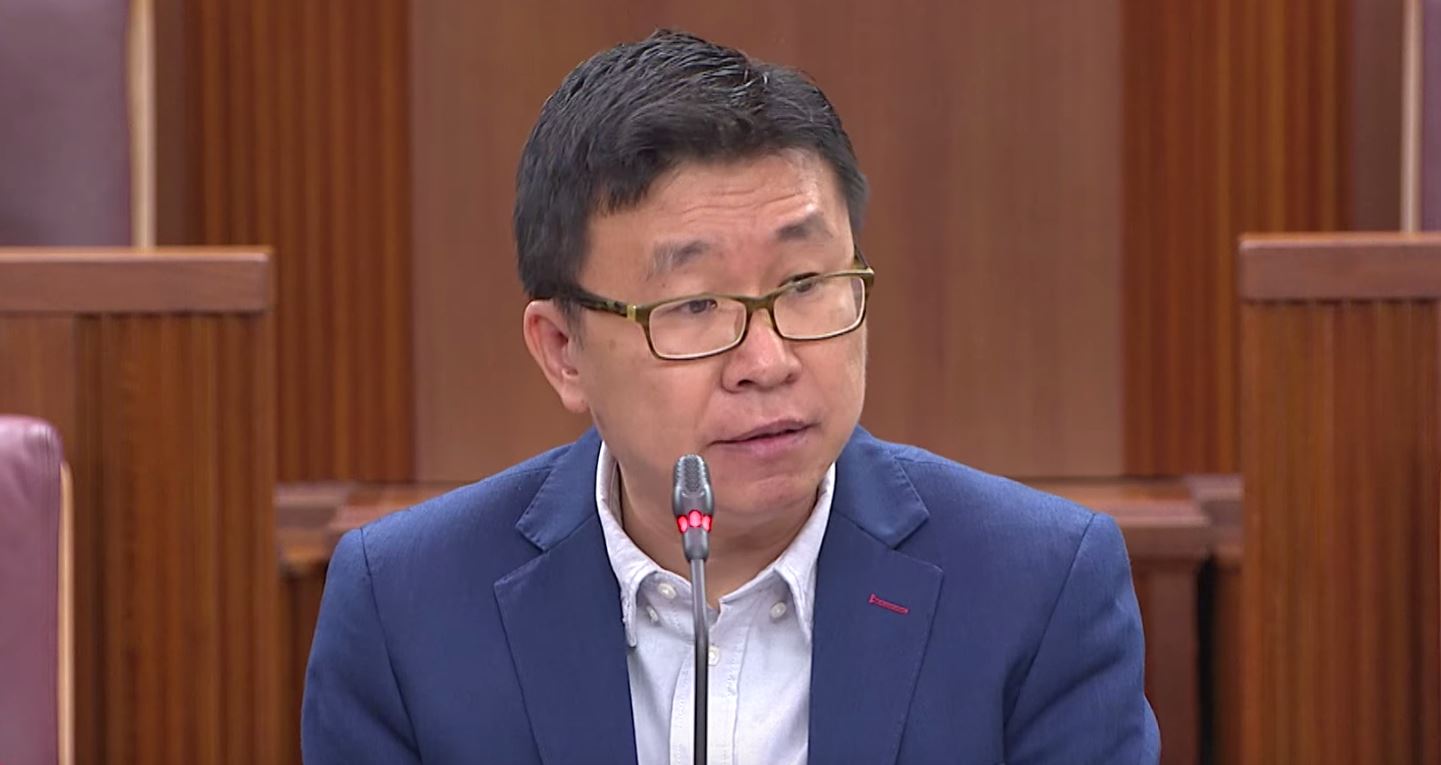Finance Minister Lawrence Wong has tabled a motion in Parliament on securing the jobs and livelihoods of Singaporeans, which is similar to the motion filed by Progress Singapore Party’s (PSP) Non-Constituency Member of Parliament (NCMP) Leong Mun Wai last week.
Mr Leong earlier has filed a motion to debate Singapore’s Foreign Talent Policy and provisions in some Free Trade Agreements (FTAs) in Parliament.
The motion was tabled following his acceptance to a challenge filed by Law and Home Affairs Minister K Shanmugam in May earlier this year to file a motion about the India-Singapore Comprehensive Economic Cooperation (CECA) so a debate can be done on it.
Mr Shanmugam was quoted saying: “There have been several canards about CECA promoted by whispering campaign. If anyone here believes that CECA is a problem, put it up for a motion, debate it openly, and let’s hear if Singaporeans benefit or lose from it.”
“I’m looking at you, Mr Leong. I invite you to put up a motion to debate CECA. You know that most of what is said about CECA is false,” he added.
In response to Mr Shanmugam’s challenge, Mr Leong said that PSP is interested in taking up the issue of CECA at “some point in time”.
Though two ministerial statements had been delivered by Health Minister Ong Ye Kung and Manpower Minister Dr Tan See Leng at July’s Parliament sitting, Mr Leong said in a Facebook post on 20 July that the ministers failed to provide all the data requested by PSP.
He noted that PSP had filed seven questions that required the Government to disclose hundreds of data points from different nationalities and work pass categories over the last 20 years, but only two ministerial statements regarding this were delivered by the Government, with only “a few scattered point of data”.
“Besides the lack of data, we also found the presentation of data to be problematic. E.g. data points were presented in convoluted and confusing ways, we requested for data on PMETs but the data given only covered PMEs, and so on,” said the NCMP.
Following that, Mr Leong has submitted a motion to debate on the nation’s Foreign Talent Policy and provisions in some FTAs on 31 Aug.
He said in a Facebook post that the private member’s motion should take place either on 13 or 14 September’s sitting according to normal procedure, in which the main focus of the debate will be on ways to improve the jobs and livelihoods of Singaporeans.
“CECA is not our main concern and has been thrust upon us by the Government,” Mr Leong remarked.
However, it appears that the Minister of Finance, Mr Wong, has also tabled a similar motion in Parliament on 8 Sep to debate on the same day as Mr Leong’s motion debate on 14 September.
This has prompted Mr Leong to put the two motions together in a Facebook post on Thursday, as he noted that “many Singaporeans may be confused why there is a need for two similar motions on the same day”.
Below is the motion submitted by Mr Leong on 31 Aug:
“That this Parliament calls upon the Government to take urgent and concrete action to address the widespread anxiety among Singaporeans on jobs and livelihoods caused by the foreign talent policy and the provisions on Movement of Natural Persons in some free trade agreements like the Comprehensive Economic Cooperation Agreement.”
While the following motion was filed by Finance Minister on 8 Sep:
Securing Singaporeans’ jobs and livelihoods: That this House
(a) acknowledges Singaporeans’ anxieties about jobs and competition in a globalized and fast-changing economy;
(b) affirms Singapore’s needs to stay open and connected to the world in order to grow and prosper;
(c) supports Government actions to manage the population of foreign manpower, ensure fair treatment by employers, and invest in education and upskilling, to create more good jobs for Singaporeans;
(d) calls on the Government to continue to update and improve its policies to secure the well-being and livelihoods of Singaporeans in an uncertain post-pandemic world; and
(e) deplores attempts to spread misinformation about free trade agreements like the Singapore-India Comprehensive Economic Cooperation Agreement (CECA), stir up racism and xenophobia, and cause fear and anxiety amongst Singaporeans.
Despite the obvious redundancy in their motion, Mr Leong said: “I am still looking forward to have an open, objective and fruitful debate in Parliament, with the aim of forging a consensus on how to rebalance the Foreign Talent Model.”
“I certainly hope we will not be bogged down with unhelpful political posturing and labelling that obscures the real issue at hand; but arrive at agreeable and concrete decisions,” he added.
Now, what’s peculiar about this is the fact that the People’s Action Party’s (PAP) ministers are capable of filing such a redundant motion in Parliament.
Why was there even a challenge thrown to Mr Leong to file a motion on CECA in the first place, when the Finance Minister can just file a motion like that?
Moreover, the motion was filed just a week after Mr Leong submitted his motion in Parliament, both of which are expected to be debated on the same date 14 September.







